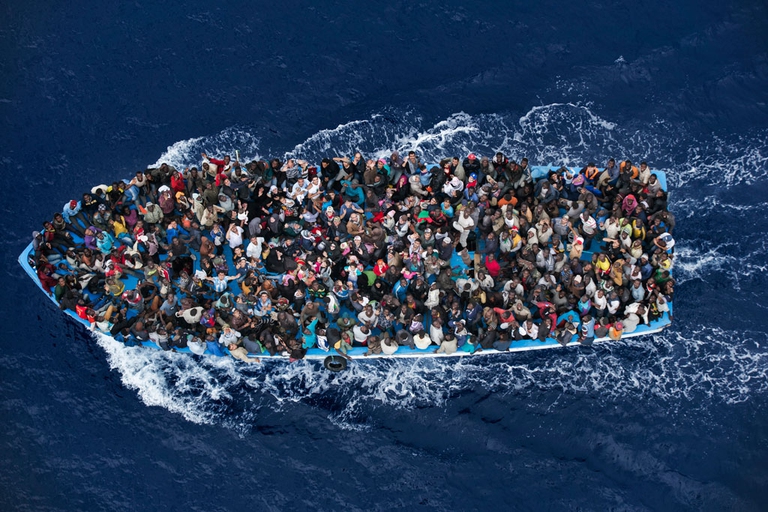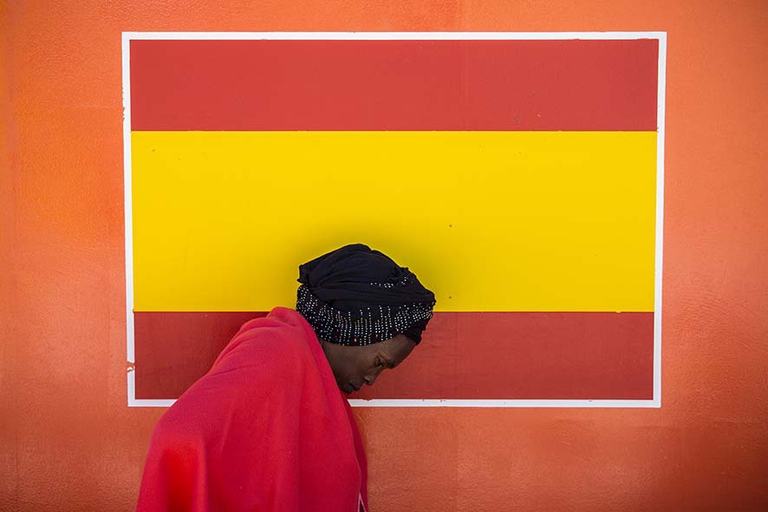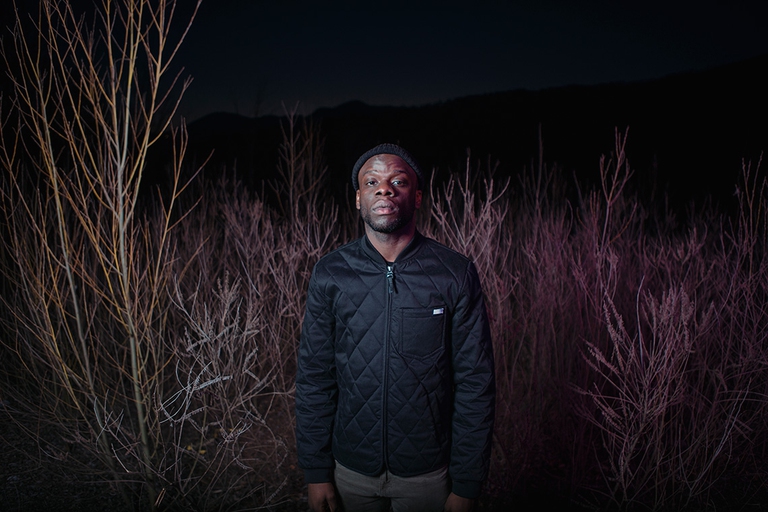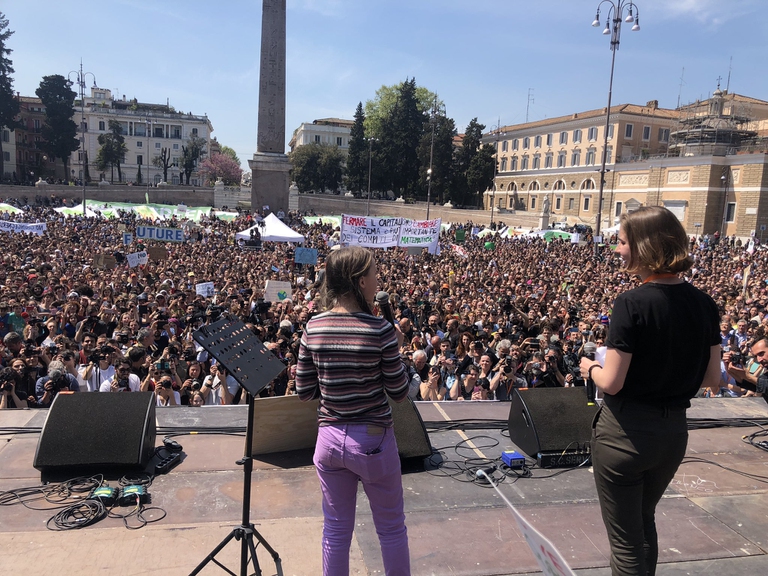
Even Cinema can reduce its ecological footprint, both in technical operations and in storytelling. TorinoFilmLab shows how.
What holds true whether we’re discussing migration or the environment? That “we’re suspicious of anything that shows empathy, goodness or righteousness,” says author and journalist Roberto Saviano. We interviewed him for the launch of his book There are no taxis in the sea.
With the precious collaboration of Camilla Soldati
“They tried to bury us, but they didn’t realise we were seeds”. It is with this quote – whose origin is unclear – that author and journalist Roberto Saviano ended his talk for the launch of his latest book, There are no taxis in the sea (In mare non esistono taxi in the original Italian, published by Contrastobooks), at the Forma Meravigli space in Milan. The book’s launch takes place at a “complicated, difficult” time, in the writer’s own words, one in which staying silent or maintaining neutrality means perpetrating a tragedy that stains the waters of the Mediterranean, the shores of Europe, Africa and the whole world, with the blood of shipwrecked migrants day after day.
Saviano is referring of course to migration, a phenomenon that affects the lives of millions worldwide. Even Italy, generally seen as a destination for migrants, sees 100,000 of its citizens leave each year in search of greener pastures. In recent times, the narrative around this topic has suffered a dramatic transformation, exploited both by politicians and crime syndicates. The roots of There are no taxis in the sea lie in this context, in the need to bear witness to what is happening, to go back to the basics of research and journalism and look into the facts. And what better way to do that than through photography?
“In this book I’ve tried to collect photographs that have transformed our time, and I believe that bearing witness is the first act we should perform when faced with these tragedies,” states Saviano, referring to the tens of thousands of people who have died over the past two decades in the desperate attempt to reach Europe in search of a better life. “When people are denied solidarity, when an ambulance gets called a taxi, all that’s left is to bear witness. In this sense, photographs are key because they represent the indelible proof. Even when they’re called into question, bearing witness becomes all the more important because lies come and go, but evidence remains”.
The book’s launch also opened the floor for asking the journalist to comment on the themes he has always concerned himself with, since he wrote Gomorra, such as the mafia and organised crime. More than ever, the focus is on their relationship with sustainable development, at a time of growing international public interest thanks to the movements such as Extinction Rebellion or Fridays for Future.
Whether the topic is criminality, migration or the environment, however, one thing remains constant: “Nowadays we’re suspicious of anything that shows empathy, goodness or righteousness,” as if whoever embodies these qualities has something to hide, a personal agenda. Even if you’re just a migrant in search of happiness, an author telling the truth, a 16-year-old girl who wants a better future for everyone. It’s as if “only cruelty is authentic” in the contemporary world.
Your book is a concrete example, a sort of “guide” to dismantling and rebuilding the truth starting from the facts. Can you explain us the power and importance of bearing witness?
We must bear witness at this moment in time because it’s a commitment that goes beyond results. Bearing witness doesn’t have an end: it just “is”. We bear witness when we have no other choice in proclaiming the truth. When thousands of people think that Aylan, the child found drowned on a Turkish beach, is a doll, fake news, all that’s left to do is bear witness, to put yourself on the line in support of truth and responsibility. This is why the only way we can speak about migration today is by bearing witness.
Last year you made an appeal to the world of culture to break the silence around some of the most divisive themes. Why?
I made this appeal, which probably failed, because whilst a significant portion of Italian intellectuals have put themselves on the frontline, the majority are cowardly staying silent. Musicians who used to take sides are now staying quiet for fear of not filling stadiums and concert venues. Artists are remaining silent, cautious: neutral, one would say. None of this holds true today, so taking a stand means exercising courage, not an advantage.
Second-generation migrants are enriching Italian and European culture: Distefano, Ghali, Gama, just to name a few. When I met Distefano he told me you were the first person to treat him as a fellow author. How will this second generation organically influence the Italian social fabric?
Second generations will reinvent the country completely because they’re the new Italians, who studied here, who often found saviour here, who in many cases gave their best in school and who can prove that “Italy” isn’t defined by skin colour or religion, but by building something together. The new generations will demonstrate this openness through an alchemy that we’ve already seen in France and in the US: the country you live in, where you were born, is celebrated every time you create something, exist or work in that country. I think this will be instrumental in exposing all the bullshit that we’ve been fed about the danger of invasion, and the belief that Italians can’t be black or Muslim and that to “be Italian” is to be white and Christian. They’ll come and break out of these limitations.
The climate crisis is causing a rise in migration. How can we face these two phenomena, which can neither be denied nor stopped?
By following the example of Greta (Thunberg, ed.). The key is making today’s generations feel the enormous responsibility they have in shaping the future, in a world in which the future doesn’t exist. Because you can’t earn the future. Greta has generated attention and kept it focused on a clear theme: that we’re destroying the world that we should be leaving as an inheritance. Said this way it may seem trite, even distant, but said by a young girl or shown, for example, in a documentary, it makes a difference. As far as I’m concerned, Greta is a symbol, for several reasons.
Firstly, precisely a young girl must be the one to point the finger because it’s her life that is being endangered by governments, much more so than mine. So, in terms of age she has more right than others, as do all children, to judge these policies. Secondly, purity. This battle must be fought by innocent souls, otherwise suspicions arise. We’re too used to feeling comfortable with cruelty. We trust only malice and cunning. When these are absent, we become suspicious. Greta embodies the vital trait of selflessness.
In this context, how is organised crime changing its actions and relationship to nature?
It’s remarkable that mafia groups were investing in alternative energy before anyone else was. And they got their hands on coltan, the mineral used in phones for energy storage, long before before the media even took notice of it. Mafia groups definitely take advantage of climate change, I’d even say that they’re probably responsible for it, in part. Where does English or American toxic waste end up? In Africa. I believe the real problem currently linking criminality to climate change is the ability of these organisations to connect to market demands: if tomorrow we need more solar panels, they’ll make them, if more oil is needed, they’re there, if we need coltan, they have it. They infiltrate themselves wherever there’s cash. Look closely at mafia groups and you’ll understand the needs of the world. They’ll start trading water – they already do – as soon as its distribution has gained enough value, like oil.
More generally, in what way is organised crime behind environmental disasters?
We have evidence of landfills in western Equatorial Africa – Liberia, Sierra Leone, Benin –, toxic waste landfills that are managed by criminals for an entirely Western market. Then we have a whole range of evidence showing how desertification improves criminal organisations’ capacity to traffic cocaine. If villages disappear, if inhabited structures disappear, and only desert is left behind, then there’s a perfect new hub for cocaine. And then we have evidence of the absolute rapacity of criminal organisations in financing mining projects to get their hands on the new gold, coltan, which I mentioned earlier. I believe that when discussing the climate we can’t not talk about capitalism. Capitalism needs to be reformed entirely, small changes won’t save the planet. If profit remains the primary motive, it’ll be the death of us.
Siamo anche su WhatsApp. Segui il canale ufficiale LifeGate per restare aggiornata, aggiornato sulle ultime notizie e sulle nostre attività.
![]()
Quest'opera è distribuita con Licenza Creative Commons Attribuzione - Non commerciale - Non opere derivate 4.0 Internazionale.
Even Cinema can reduce its ecological footprint, both in technical operations and in storytelling. TorinoFilmLab shows how.
Kyoto’s premier photography festival, Kyotographie, grows in stature with the launch of a new music festival, Kyotophonie, held in the spring and autumn.
The small state of Mizoram in northeast India has a thriving handicraft industry, with artisans making a living by selling products made from bamboo.
Many British cultural institutions have ended their relationship with oil giant BP in recent years, thanks to pressure from activists and the public.
Communities across India are celebrating Durga Puja, a festival that stands as an example of the communal unity which is under threat in the country .
Through stories of encounters between humans and animals, Our Wild Calling offers a way out of an age of solitude. We speak to author Richard Louv.
Survival, multiculturalism, plastic islands. Musician Grey Filastine recounts his adventure aboard the Arka Kinari, which set sail in 2019 and spent much of last year adrift in the Pacific because of the pandemic.
Chinese filmmaker Chloé Zhao made history, becoming the first Asian woman to win an Academy Award as well as a Golden Globe for Best Director for Nomadland.
A list of some of the best films on ethical and sustainable fashion shown at past editions of the Milan Fashion Film Festival.











